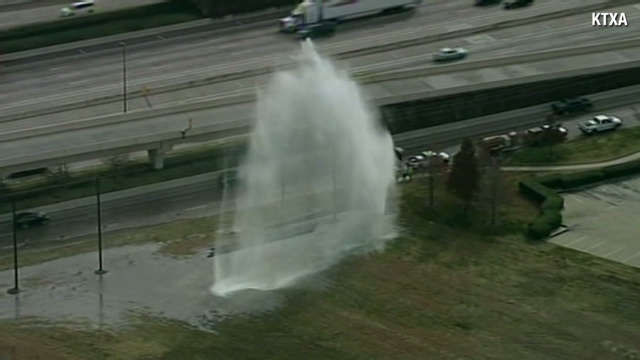During this hyperpartisan election season, we've heard plenty from President Obama and Governor Romney on their approaches to many serious issues. But the candidates have largely ignored one issue that affects every American, regardless of party affiliation — the desperate need to invest in our nation's crumbling water and wastewater infrastructure. Thankfully, this need is included in both party platforms, but really, how often does a platform translate into action? And action is what we need.
In every state, including New Hampshire and Maine, great strides have been made to reduce water pollution and ensure safe drinking water. For evidence, look no further than the town of Seabrook, N.H., now enjoying the benefits of a sparkling new $7 million drinking water treatment facility, funded in large part by the 2009 economic stimulus program. As New Hampshire Department of Environmental Services Commissioner Tom Burack said when the project was announced, "Investment in water infrastructure is necessary to ensure communities prosper and thrive." But stimulus programs are rare, and often the necessary investment isn't made. Too many communities in this state and across the country lack the modern, thoroughly operable water and wastewater infrastructure they need.
As anyone who's suffered through a water main break can tell you, the widespread deterioration of America's water pipes and treatment systems can have a direct and debilitating impact on our lives and livelihoods. Inefficiencies in our water infrastructure also drive up the costs of everything, from the water out of the tap to the groceries in the refrigerator, from the price of homeowners insurance to the cost of consumer goods shipped via ports and waterways. And inefficient we are. The American Society of Civil Engineers (ASCE) gives a D- grade to the state of our nation's wastewater and drinking water infrastructure, levees, and inland waterways.
Fixing it all won't come cheap. The American Water Works Association says restoring existing drinking water systems as they reach the end of their useful lives and expanding them to serve a growing population will cost at least $1 trillion over the next 25 years. In 2009, EPA identified a total water infrastructure capital investment need of $632.9 billion over the next 20 years; at current funding levels, that will leave a capital funding gap of at least $224 billion nationwide.
In a time of economic distress, filling that gap makes sense, whatever side of the political aisle you're on. Last year, the ASCE estimated that even a modest increase in spending on water infrastructure could result in 700,000 new jobs. Other estimates go far higher. A 2011 report, Water Works, by Green for All, a nonprofit funded by the Rockefeller Foundation among others, states that investing in water infrastructure at the level EPA says is required to preserve water quality could create 1.9 million American jobs — with some 17,500 of those jobs in Maine and New Hampshire. And the economic impact goes beyond jobs: Investing in water infrastructure spurs growth in general by ensuring safe, reliable water and wastewater systems to attract and retain businesses and qualified workers.
A 2010 survey by the manufacturing company ITT found that 95 percent of American voters rank clean water as the most important service government provides. Furthermore, 87 percent believe government should be taking the lead in identifying solutions to the current water infrastructure crisis and 85 percent support additional investment.
Clearly water must be on the agenda in Washington, and it would help if the president and his Republican rival began talking about it now. But we need talking at the state and local level too. In 2008, the ASCE said nearly $600 million was needed over the next 20 years to repair, replace, and upgrade New Hampshire's drinking water infrastructure, with $570 million needed for the state's wastewater infrastructure. The numbers for Maine: nearly $832 million for drinking water, another $851 million for wastewater.
As voters, we need to ask candidates at all levels of government what ideas they have to address these needs and whether they will commit to making clean water a top priority for our cities and towns, our state, and our nation.
By Ronald F. Poltak@fosters.com

No comments:
Post a Comment